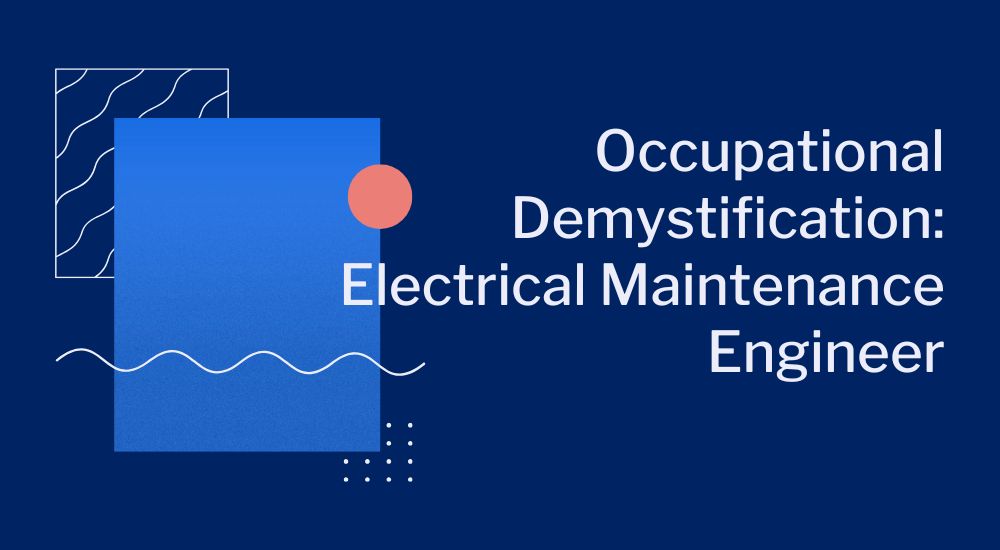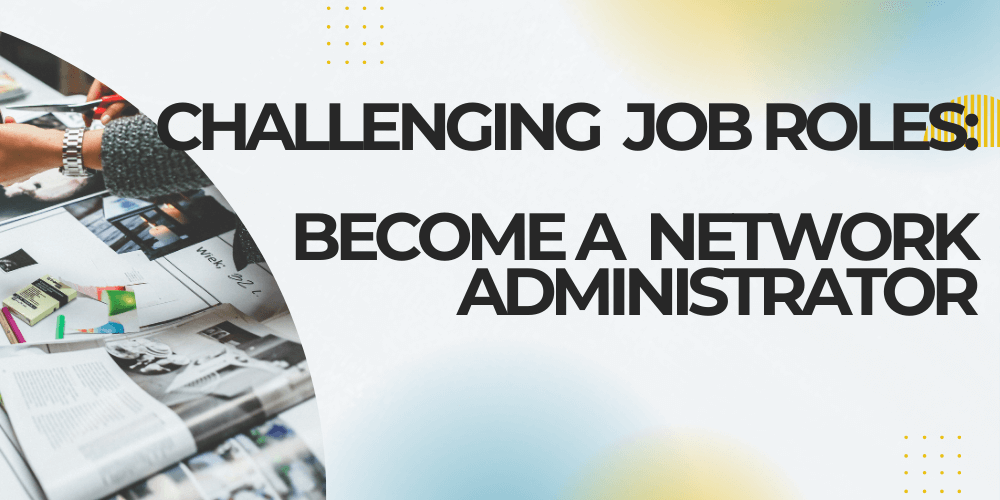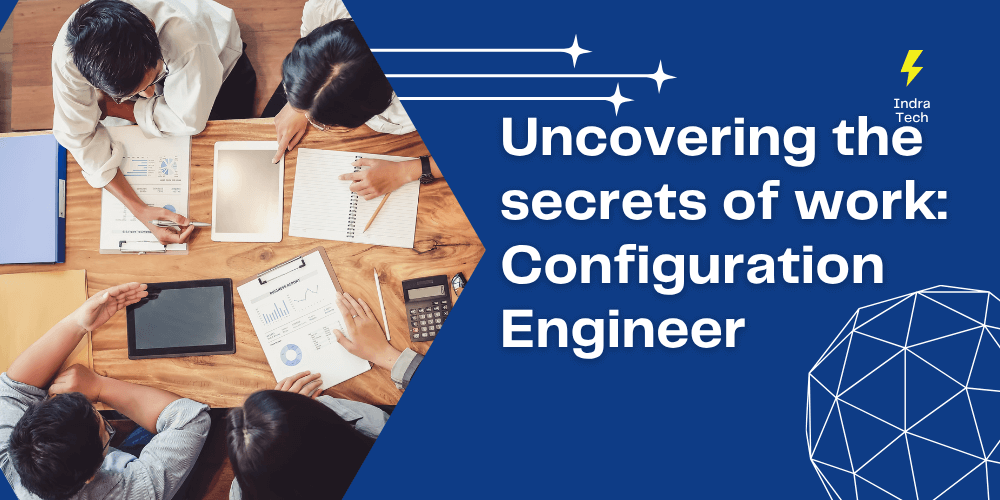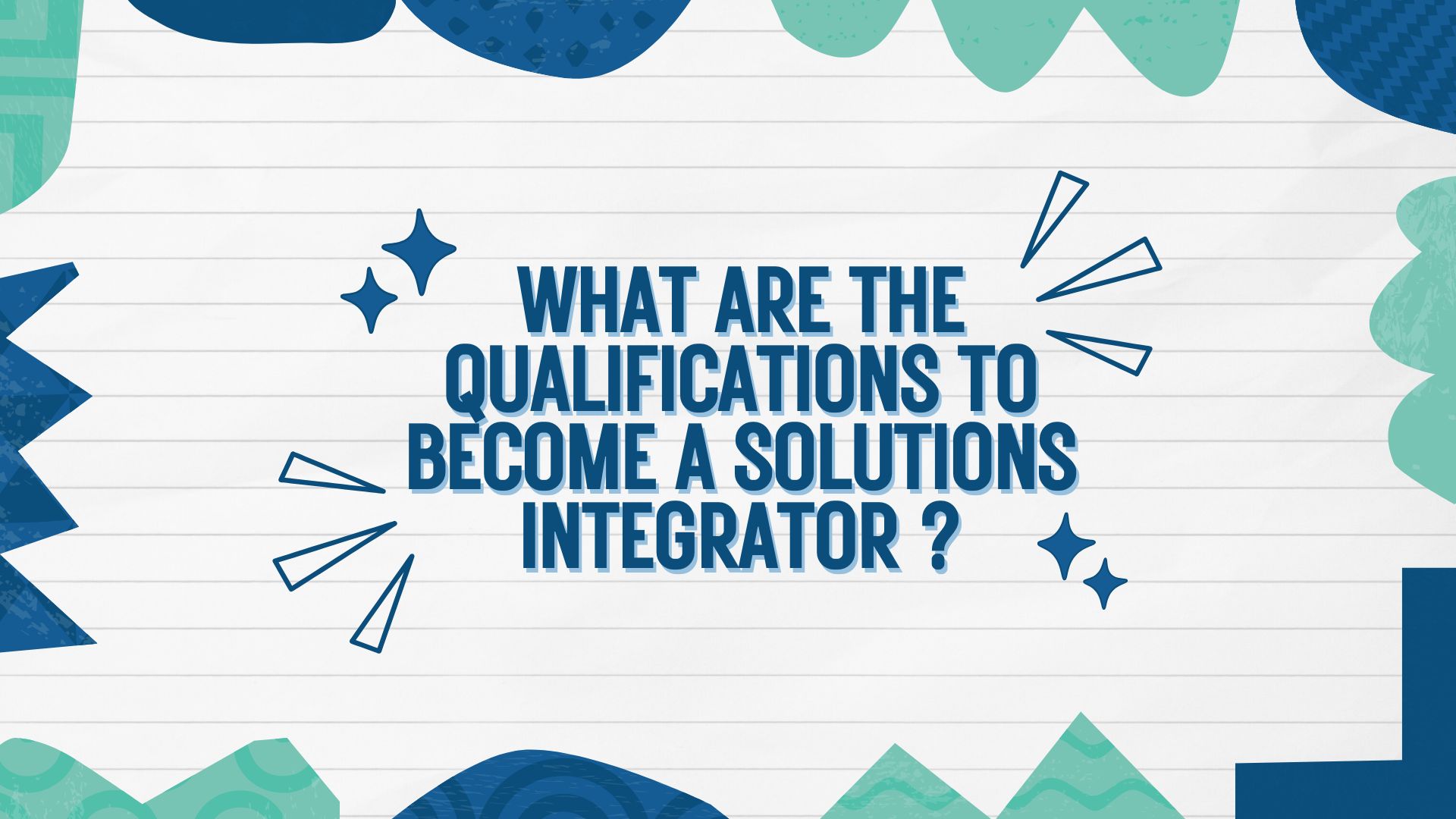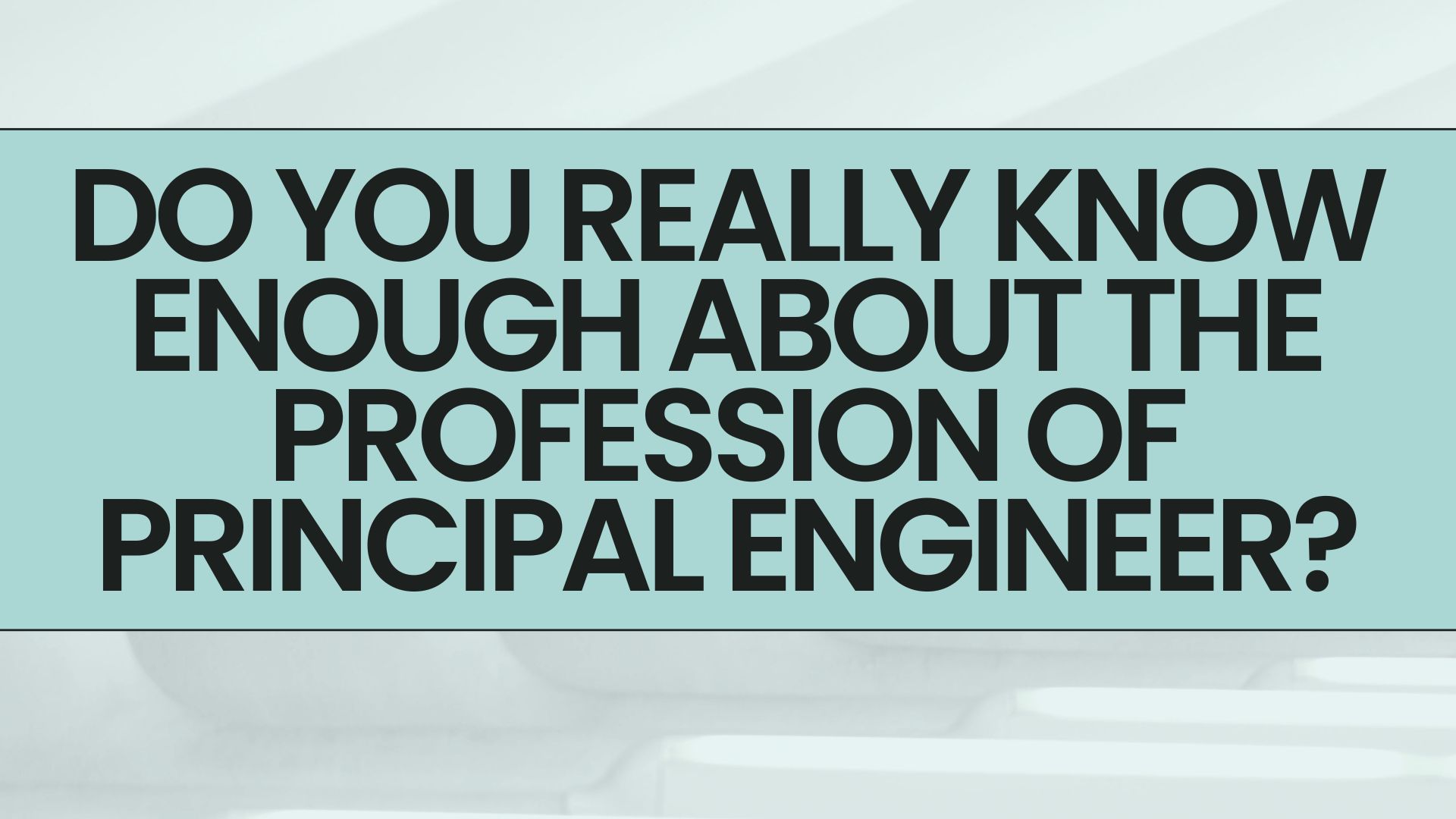TRUSTED BY THE SMARTEST TEAMS IN THE WORLD FOR CERTIFIED CANDIDATES
SPOTO Blogs
Useful learning materials to become certified IT personnel
-
- 859
- SPOTO 2
- 2025-07-14 10:23
-
- 615
- SPOTO
- 2025-07-11 13:40
-
- 723
- SPOTO 2
- 2025-07-11 13:25
-
- 786
- SPOTO
- 2025-07-11 13:14
-
- 730
- SPOTO 2
- 2025-07-11 11:01
-
- 987
- SPOTO
- 2025-07-10 14:10
-
- 755
- SPOTO
- 2025-07-10 11:06
-
- 773
- SPOTO
- 2025-07-10 10:43
-
- 678
- SPOTO
- 2025-07-10 10:31
TRUSTED BY THE SMARTEST TEAMS IN THE WORLD FOR CERTIFIED CANDIDATES
SPOTO Blogs
Useful learning materials to become certified IT personnel
-
- 859
- SPOTO 2
- 2025-07-14 10:23
Table of Contents1. What is an IT Support Engineer?2. How much does an IT Support Engineer Make?3. Responsibilities of an IT Support Engineer4. What Are the Qualifications to Become an IT Support Engineer?5. Similar Occupations of IT Support Engineer This article will introduce you to what an IT Support Engineer is, the career information of an IT Support Engineer and the necessary conditions to become an IT Support Engineer. By reading this article, you will gain an in-depth understanding of the profession of IT Support Engineer. 1. What is an IT Support Engineer? IT Support Engineers are professional technicians who are responsible for solving technical problems for internal employees or external customers, providing information technology-related technical support, troubleshooting, system maintenance and user support for enterprises or individual users. They are key roles in ensuring the smooth operation of IT systems, solving daily technical problems, and solving user technical problems. 2. How much does an IT Support Engineer Make? The salary of an IT Support Engineer is influenced by a variety of factors, with significant differences between regions, experience and backgrounds. Generally speaking, the salary of IT Support Engineers in first-tier cities is significantly higher than that in other regions: For example, in the United States, the salary in technology centers or metropolitan areas such as Silicon Valley and New York is significantly higher. Similarly, the salary of IT Support Engineers is also affected by the number of years of work experience. Junior IT Support Engineers usually deal with basic problems, and their salary is at the lower end of the range. According to data, the annual salary of junior IT Support Engineers in the United States is about $45K - $65K. Generally speaking, the salary of IT Support Engineers in first-tier cities is significantly higher than that in other regions: For example, in the United States, the salary in technology centers or metropolitan areas such as Silicon Valley and New York is significantly higher. Similarly, the salary of IT Support Engineers is also affected by the number of years of work experience. Junior IT Support Engineers usually deal with basic problems and their salary is at the lower end of the range. According to the data, the annual salary of junior IT Support Engineers in the United States is about $45K - $65K. In contrast, mid-level IT Support Engineers can solve complex problems independently and take on more responsibilities, so their salary has also increased significantly, from the original $45K - $65K to an average of $60K - $85K. In general, senior IT Support Engineers have a deep technical foundation and may be responsible for training, process improvement or experts in specific fields. Their salary can reach $80K - $110K, and they may begin to transition to higher-level roles such as system administrators and network engineers. Similarly, the salary of IT Support Engineers will also be affected by the industry and company size. Large enterprises or high-tech industries such as the Internet often offer better treatment than small and medium-sized traditional industries. 3. Responsibilities of an IT Support Engineer The core responsibilities of an IT Support Engineer are to diagnose and troubleshoot problems and to handle hardware issues such as computer failures, printer failures, and abnormal network device connections. They also need to solve and troubleshoot network problems and perform daily inspections and maintenance on systems and equipment to ensure their normal operation. Responsible for the installation and update of system patches, as well as the upgrade of virus protection software, providing technical advice to users, and answering questions about the use of IT equipment and software are also necessary. 4. What Are the Qualifications to Become an IT Support Engineer? (1) Obtain a Bachelor's Degree A bachelor's degree or above is generally required, preferably in computer-related majors such as computer science, information technology, or software engineering. These majors can provide a comprehensive understanding of computer hardware and software principles, laying a solid foundation for future work. (2) Core Technical Skills To become a Network Administrator, It is necessary to have a good understanding of common operating systems such as Windows, macOS, and Linux, and be proficient in their installation, configuration, and troubleshooting. At the same time, one should master the knowledge of computer hardware components, be able to diagnose and solve hardware-related problems. It is also necessary to master network technology and software and database skills. (3) Earn Industry Certifications Certification is an important proof of ability, especially for those without experience or job seekers in different industries. Although not all employers require certification, obtaining relevant certifications can enhance personal competitiveness. For example, CCNA is often seen as the starting point for IT careers and can prove basic IT technical capabilities. CCIE helps to master network-related knowledge, and Cisco certifications are of great benefit to those who plan to work in network technology-related jobs. SPOTO Academy focuses on certification training in key areas such as CCNA and CCNP. Its strong teaching team is composed of experienced industry experts who are well versed in the forefront of technology. Whether you are starting from scratch or a working professional who wants to improve your professional depth, SPOTO can match you with accurate and efficient course solutions. 5. Similar Occupations of IT Support Engineer Help Desk Technician Systems Administrator Network Engineer Desktop Support Technician Technical Support Specialist -
- 615
- SPOTO
- 2025-07-11 13:40
Table of Contents1. What is an Electrical Maintenance Engineer ?2. Responsibilities of an Electrical Maintenance Engineer3. How much does an Electrical Maintenance Engineer Make?4. What Are the Qualifications to Become an Electrical Maintenance Engineer ?5. Similar Occupations of Electrical Maintenance Engineer6. What professional certification can help you start your career as an Electrical Maintenance Engineer ? This article will introduce you to what an Electrical Maintenance Engineer is and the necessary conditions to become an Electrical Maintenance Engineer. By reading this article, you will gain an in-depth understanding of the profession of Electrical Maintenance Engineer . 1. What is an Electrical Maintenance Engineer ? Electrical maintenance engineers are professional technicians responsible for maintaining, troubleshooting and repairing the electrical systems and equipment of an organization or factory. 2. Responsibilities of an Electrical Maintenance Engineer As an electrical maintenance engineer, your main job revolves around the safe and stable operation of electrical equipment and systems. Specifically, you need to regularly check whether the electrical systems and equipment are damaged or worn and perform routine maintenance on the electrical systems and equipment in a timely manner. Secondly, you need to be able to accurately diagnose and troubleshoot electrical faults and set solutions to ensure that the organization's electrical system complies with electrical specifications and safety standards. Finally, cross-departmental cooperation is sometimes necessary and indispensable, and you need to be able to work with other maintenance team members to solve cross-functional problems. 3. How much does an Electrical Maintenance Engineer Make? According to ZipRecruiter's data on July 3, 2026, the average annual salary for electrical maintenance engineers in the United States is $88,310. That's about $42.46 per hour. That's equivalent to $1,698 per week or $7,359 per month. Annual salaries can be as high as $121,500 and as low as $47,500, but most electrical maintenance engineers currently make between $77,500 and $97,500, with the highest earners making $110,500 per year. The average salary range for an electrical maintenance engineer varies widely (up to $20,000), which means there may be many opportunities for advancement and increased pay based on skill level, location, and years of experience. 4. What Are the Qualifications to Become an Electrical Maintenance Engineer ? (1) Obtain a Bachelor's Degree Electrical Maintenance Engineer is a career that requires applicants to have a bachelor's degree in electrical engineering, electrical engineering or electrical engineering technology. (2) Develop Professional skills For Electrical Maintenance Engineers, installing and maintaining electrical systems, equipment and devices, and being able to use and maintain hand and power tools are basic entry skills. Higher-level skills require you to acquire relevant certifications and practical experience. (3) Earn Practical Experience For Electrical Maintenance Engineer, relevant work and internship experience can make you more competitive during the interview, so having practical experience in electrical related fields will be a plus point for your resume. 5. Similar Occupations of Electrical Maintenance Engineer Control Engineer Electrician Electronics Engineer Electrical Technician Maintenance Technician Electrical Project Manager Electrical Designer Electrical Engineer 6. What professional certification can help you start your career as an Electrical Maintenance Engineer ? Obtaining a certification that is highly recognized by the industry can prove your professional ability and ability to perform the position, and can also enhance your competitiveness in the workplace. Therefore, we recommend that you obtain the CCIE Enterprise Infrastructure certification. This certification can prove your skills with complex enterprise infrastructure solutions from designing and deploying to operating and optimizing. Take your place as a technical expert by achieving the Cisco Certified Internetwork Expert (CCIE) Enterprise Infrastructure certification. -
- 723
- SPOTO 2
- 2025-07-11 13:25
Table of Contents1. What is a Network Administrator?2. How much does a Network Administrator Make?3. Responsibilities of a Network Administrator4. What Are the Qualifications to Become a Network Administrator?5. Similar Occupations of Network Administrator This article will introduce you to what a Network Administrator is, the career information of a Network Administrator and the necessary conditions to become a Network Administrator. By reading this article, you will gain an in-depth understanding of the profession of Network Administrator. 1. What is a Network Administrator? A Network Administrator is an IT professional responsible for designing, implementing, maintaining, and troubleshooting an organization’s computer networks. These networks can range from small local area networks in a single office to large wide area networks connecting multiple locations, and may include on-premises infrastructure, cloud-based networks, or hybrid setups. The core goal of a Network Administrator is to ensure network availability, security, and performance to support business. 2. How much does a Network Administrator Make? Generally speaking, affected by geographical factors, first-tier cities generally have higher salaries, with 72.8% of network administrator positions earning between 6-10K per month and 7-12W per year. Second-tier cities are relatively low, with 88.2% of positions earning 3-8K per month and 4-10W per year. Network administrators in marginal villages may earn even less. The salary of fresh graduates is relatively low. According to Zippia data, 83.3% of network administrator positions earn 3K to 8K per month. With the accumulation of experience, the salary will gradually increase. Generally, the higher the education level, the higher the salary. The salary of a network administrator will also be affected by the scale of the enterprise and industry factors. Large enterprises or Internet companies have larger business scales and higher technical requirements, so their salaries are more considerable. Senior network administrators in large enterprises in first-tier cities can earn more than 10,000 yuan per month. In addition, in industries with higher requirements for network security, such as finance, government, and the Internet, network administrators will also have higher salaries. 3. Responsibilities of a Network Administrator Network administrators plan and set up network infrastructure, design and implement networks, and configure network protocols and services to enable communication between devices. Perform regular maintenance tasks, maintain and monitor networks, patch network devices, and optimize network performance. Network administrators also need to actively troubleshoot and solve problems, diagnose and resolve network problems encountered to minimize downtime and protect the network from unauthorized access, malware, or cyber attacks. In addition to this, network administrators are also required to assist employees with network-related issues, such as not being able to connect to the office Wi-Fi, email server issues. Maintain network documentation, including topology diagrams, device configurations, and security policies. Expand network capacity to support growing business needs. 4. What Are the Qualifications to Become a Network Administrator? (1) Obtain a Bachelor's Degree While not always strictly required, most employers prefer candidates with associate's or bachelor's degrees, typically in fields like computer science and information technology. Those with a bachelor's degree or above are more competitive in large companies or high-paying positions, especially when it comes to complex network architecture, where academic qualifications are often used as a screening threshold. Network Engineering, or Computer Networking. These programs cover foundational topics such as network protocols, operating systems and basic cybersecurity. For entry-level roles, a diploma in network administration or IT support may suffice, especially when paired with certifications. (2) Core Technical Skills To become a Network Administrator, you need a combination of educational background, technical skills, certifications, and practical experience to manage and troubleshoot networks effectively.Network administrators must master the basics of networking, be proficient in network protocols, understand network topology, and be familiar with network devices in order to effectively manage and troubleshoot network problems. They also need to understand common threats and mitigation measures, troubleshoot and monitor, and be able to use certain tools to diagnose network problems, solve connection problems, bandwidth bottlenecks or hardware failures, and have basic scripting skills and be familiar with scripting languages to automate repetitive tasks. (3) Earn Industry Certifications Certification is an important proof of ability, especially for those without experience or job seekers in different industries. For fresh graduates, companies will also prefer job seekers who have better previous experience and more industry-recognized certificates. Cisco CCNA focuses on Cisco equipment configuration, routing and switching, and is an entry-level certification with high industry recognition. Cisco CCNP is more suitable for large-scale network architecture management. It is a more advanced certificate certification suitable for professionals who want to further develop their career path. SPOTO Academy's courses cover key technologies such as CCNA, CCNP, SPOTO has gathered a large number of excellent teachers. Many experts have rich industry experience and master cutting-edge professional technologies. Whether you are a novice or a worker who wants to further study in the industry, you can find a course suitable for you in SPOTO. 5. Similar Occupations of Network Administrator Network Engineer System Administrator Cloud Engineer Network Security Engineer IT Support Engineer -
- 786
- SPOTO
- 2025-07-11 13:14
Table of Contents1. What is a Field Service Engineer?2. Responsibilities of a Field Service Engineer3. How much does a Field Service Engineer Make?4. What Are the Qualifications to Become a Field Service Engineer? This article will introduce you to what a Field Service Engineer is and the necessary conditions to become a Field Service Engineer. By reading this article, you will gain an in-depth understanding of the profession of Field Service Engineer. 1. What is a Field Service Engineer? Field service engineers are professional technicians who need to install, test and repair equipment or systems on site at the customer's location. 2. Responsibilities of a Field Service Engineer The job responsibilities of a Field Service Engineer are mainly to ensure the stable operation of equipment and systems. Specifically, field service engineers need to install new hardware, software, or systems while monitoring existing problems to set up solutions. To do this, they may work with other professionals with the necessary expertise to fully meet customer needs as quickly as possible. Secondly, as technology advances and equipment is updated and iterated, they have to manage and track newly purchased equipment and systems.Finally, they respond to calls from field service managers in a timely manner and complete service tasks. 3. How much does a Field Service Engineer Make? According to ZipRecruiter as of July 3, 2026, the average annual salary for a Field Service Engineer in California is $70,288. That works out to about $33.79 per hour. That works out to $1,351 per week or $5,857 per month. Salaries range from as high as $104,118 to as low as $36,022, but most Field Service Engineer salaries currently range from $56,300 to $83,400, with the top earners (90th percentile) making $94,742 per year in California. The average salary range for a Field Service Engineer varies widely (as much as $27,100), which means there may be many opportunities for advancement and increased pay based on skill level, location, and years of experience. 4. What Are the Qualifications to Become a Field Service Engineer? (1) Obtain a Bachelor's Degree Most field service engineer positions typically require a bachelor's degree in engineering such as computer science, mechanical engineering, or a related field. (2) Develop Professional skills Field service engineer need to have a specific set of technical skills in order to excel in their job. These skills include specialized technical knowledge of circuits, mechanical functions, blueprints, and software programs. Therefore, you need to master as many of these skills as possible before applying for a job. (3) Earn Practical Experience If you have relevant work experience in the workplace, it will make the employer more confident that you can successfully perform the job. Because Field Service Engineer has a high requirement for practical experience in the workplace, having relevant internship or work experience can make you stand out in the workplace. 5. Similar Occupations of Field Service Engineer Service Engineer Field Specialist Technical Support Engineer Project Manager Service Technician Engineering Technician Customer Engineer Sales Engineer Application Engineer 6. What professional certification can help you start your career as a Field Service Engineer ? Obtaining a certification that is highly recognized by the industry can prove your professional ability and ability to perform the position, and can also enhance your competitiveness in the workplace. Therefore, we recommend that you obtain the CCIE Enterprise Infrastructure certification. This certification can prove your skills with complex enterprise infrastructure solutions from designing and deploying to operating and optimizing. Take your place as a technical expert by achieving the Cisco Certified Internetwork Expert (CCIE) Enterprise Infrastructure certification. -
- 730
- SPOTO 2
- 2025-07-11 11:01
Table of Contents1. What is a CloudOps Engineer?2. How much does a CloudOps Engineer Make?3. Responsibilities of a CloudOps Engineer4. What Are the Qualifications to Become a CloudOps Engineer?5. Similar Occupations of CloudOps Engineer This article will introduce you to what a CloudOps Engineer is, the career information of a CloudOps Engineer and the necessary conditions to become a CloudOps Engineer. By reading this article, you will gain an in-depth understanding of the profession of CloudOps Engineer. 1. What is a CloudOps Engineer? CloudOps Engineer is a professional technician responsible for the deployment, monitoring, maintenance, optimization and automation of cloud environments. The core goal of CloudOps Engineer is to ensure the stable, efficient and secure operation of cloud infrastructure and applications. As enterprises migrate their businesses to cloud platforms, CloudOps engineers have become a key role connecting development and operation and are an indispensable part of modern cloud-native architecture. 2. How much does a CloudOps Engineer Make? The salary of a CloudOps Engineer who has just entered the workplace and usually has 1-3 years of work experience is relatively low. According to ZipRecruiter data, the monthly salary of engineers at this stage is about 20-25K. However, the salary of a senior CloudOps Engineer with more than 5 years of work experience will increase significantly. Generally speaking, 81.9% of senior devops engineers have a monthly salary between 20-50K, and an annual salary of 240K-600K. Large Internet companies and financial technology companies are highly dependent on cloud computing and are willing to pay high salaries to attract talent. In large Internet companies such as Alibaba and Tencent, the annual salary of a senior CloudOps Engineer can reach 50W-100W. Financial technology companies have high requirements for technical stability and security, and their salaries are also at a high level. In comparison, the salary level of CloudOps Engineers offered by small and medium-sized enterprises is relatively low, and the monthly salary may be around 10-20K. However, some well-developed startups will also offer competitive salaries to attract talent. 3. Responsibilities of a CloudOps Engineer The core responsibilities of CloudOps Engineer include cloud infrastructure management. They are responsible for the deployment, configuration and lifecycle management of cloud resources to ensure that resources are allocated on demand and at a reasonable cost. In addition, they also monitor and troubleshoot, build monitoring systems, and track the performance indicators and application health status of cloud resources in real time. It is also the responsibility of CloudOps Engineer to automate the operation and maintenance process through scripts or tools, reduce manual operation errors, quickly locate and solve faults, reduce business downtime, and participate in continuous deployment to ensure smooth delivery of code from the development to the production environment. In short, the work of CloudOps Engineer covers the entire enterprise system and plays a very important role in the company. 4. What Are the Qualifications to Become a CloudOps Engineer? (1) Obtain a Bachelor's Degree While there's no strict requirement, most employers prefer candidates with at least a bachelor’s degree. A bachelor's degree in fields like computer science, information technology, software engineering, or a related technical discipline. This provides foundational knowledge in networking, operating systems, and programming. For senior roles, a master's degree in cloud computing, cybersecurity, or an MBA in technology management may be advantageous, though it's often not mandatory if paired with extensive experience. (2) Core Technical Skills To become a CloudOps Engineer, you need a combination of educational background, technical skills, certifications, and practical experience to manage cloud infrastructure, ensure reliability, and automate operations. CloudOps Engineer need to compute Engine, Cloud Storage, VPC, Cloud Functions and understand cloud architecture patterns and use manager templates, or Google Cloud Deployment Manager to automate infrastructure provisioning. They also need to automate the software delivery workflow to understand the methods and collaboration models between development and operations teams. (3) Earn Industry Certifications Certifications can validate your expertise and are highly valued by employers. For Cisco instructor Elvin Arias Soto, certification is not just about getting a better job or a higher salary, it opens up a world of possibilities. Having the certification has allowed him to work for some of the most prestigious companies in different countries and gain respect from his peers in the industry. He has obtained CCNA, CCNP, and CCIE professional certifications. It was also because he had professional certifications of CCNA, CCNP, and CCIE that he had the opportunity to work for Cisco, and these certifications became the catalyst for his first promotion to Level 2 Support Security. SPOTO Academy's courses cover key technologies such as CCNA, CCIE, CCNP, and cloud data services, and invite industry experts to provide guidance to ensure that you master practical skills. If you want to quickly master programming, cloud platform knowledge, and device operation and maintenance, you may consider taking SPOTO's comprehensive courses. 5. Similar Occupations of CloudOps Engineer DevOps Engineer Cloud Engineer Site Reliability Engineer Systems Administrator Cloud Security Engineer -
- 987
- SPOTO
- 2025-07-10 14:10
Table of Contents1. What is a Configuration Engineer?2. Responsibilities of a Configuration Engineer3. How much does a Configuration Engineer Make?4. What Are the Qualifications to Become a Configuration Engineer?5. Similar Occupations of Configuration Engineer This article will introduce you to what a Configuration Engineer is, the career information of a Configuration Engineer and the necessary conditions to become a Configuration Engineer. By reading this article, you will gain an in-depth understanding of the profession of Configuration Engineer. 1. What is a Configuration Engineer? Configuration engineer is a technical position focusing on system configuration management, optimization and maintenance. The core responsibility is to ensure the consistency, stability and traceability of software, hardware or complex systems throughout their life cycle through standardized configuration processes and tools. This position is widely used in IT, manufacturing, software engineering and other fields. The work of configuration engineers revolves around "configuration", which refers to key information such as the system's composition structure, parameter settings, component versions, dependencies, etc. Its core goal is to ensure the accuracy and consistency of system configuration, track configuration changes and control change risks and improve system maintainability. 2. Responsibilities of a Configuration Engineer Configuration engineers need to develop configuration management plans based on the application field, design configuration management processes, and clarify the naming rules, version control standards, and change approval processes of system components. Select appropriate configuration management tools, sort out key configuration items in the system, establish configuration baselines as the benchmark for subsequent changes, and record the version history, responsible persons, and reasons for changes of configuration items to ensure traceability throughout the life cycle. Configuration engineers also need to review system configuration change requests and evaluate the impact of changes on system stability and compatibility, such as checking the adaptability of software functions after updates and adjusting hardware parameters, supervising the change implementation process, ensuring that changes are executed as planned, and verifying whether the system meets expectations after the changes. 3. How much does a Configuration Engineer Make? According to BYD Group data, BYD's configuration management engineers with 1-3 years of experience have a monthly salary of about 26.5k, those with 3-5 years of experience can earn 32.9k, and those with 5-10 years of experience can earn 32.5k. Overall, with the increase of work experience, the salary has increased significantly, and the annual salary of configuration engineers with 5-10 years of experience can reach 120K-600K. Differences in education will also bring different treatments. Taking BYD as an example, the monthly salary of configuration management engineers with bachelor's degrees is about 29.6k, while the monthly salary of those with a master's degree can reach 40k. The higher the education level, the more obvious the salary advantage. If you have a relevant certification that is highly recognized by the industry, you are more likely to get a higher salary. 4. What Are the Qualifications to Become a Configuration Engineer? (1) Obtain a Bachelor's Degree Configuration Engineer careers often require job seekers to have a bachelor's degree in their field of engineering. A bachelor’s degree is standard for entry-level positions. Master’s degrees may be preferred for senior roles or specialized industries where complex system configuration is required. (2) Develop Practical Experience Configuration engineers must master skills related to configuration management processes, tools, and system architecture. Key technical competencies including: configuration management fundamentals, familiar with CM standards and CM tools and basic programming. Hands-on experience is critical, as configuration engineering emphasizes real-world problem-solving. Typical experience requirements include exposure to CM processes and familiarity with basic tools. If you have experience in designing and implementing CM plans for small to medium projects that will be better. (3) Earn Industry Certifications The work of configuration engineers emphasizes practical skills. Some companies pay more attention to "the ability to quickly solve practical problems" rather than just certificates. Certifications not always mandatory but they can validate expertise and enhance competitiveness, especially in regulated or technical industries. Recruiters will also prefer candidates with industry-related certifications. If you were the boss, would you choose a candidate with relevant certificates or a candidate without any certificates? Relevant certificates can objectively prove that practitioners have mastered industry standards and professional skills, such as holding a CCNA certificate. The CCNA certificate focuses on the ability to install, configure, operate and troubleshoot medium-sized routing and switching networks, as well as basic security and wireless network knowledge. Among them, "configuration management" is one of the core modules. Holding a CCNA or higher certification can prove the standardized understanding of IT system configuration processes, especially in the Internet and financial technology industries. 5. Similar Occupations of Configuration Engineer Release Engineer IT Operations Engineer Systems Integration Engineer Change Management Specialist Industrial Automation Engineer -
- 755
- SPOTO
- 2025-07-10 11:06
Table of Contents1. What is an Automation Engineer?2. How much does an Automation Engineer Make?3. Job Outlook of Automation Engineer4. What Are the Qualifications to Become an Automation Engineer?5. Similar Occupations of Maintenance Engineer This article will introduce you to what an Automation Engineer is, the career information of an Automation Engineer and the necessary conditions to become an Automation Engineer. By reading this article, you will gain an in-depth understanding of the profession of Automation Engineer. 1. What is an Automation Engineer? An automation engineer is a professional technician who is responsible for designing, developing, deploying and maintaining automation systems. Its core goal is to reduce manual intervention, improve production efficiency, reduce costs to improve the accuracy and safety of operations through technical means. This profession is widely used in manufacturing, energy, logistics, IT, medical and other fields. The core responsibilities of automation engineers include system design and development, programming and debugging, and timely maintenance and optimization of the system. They need to design automation solutions according to industry needs, select appropriate technical tools, and integrate them. Write control programs to ensure that the equipment operates according to the preset logic and solve operational failures. In addition, automation engineers also need to regularly check the operating status of automation equipment, perform preventive maintenance, extend equipment life, analyze system production efficiency and energy consumption, and optimize processes to improve performance. 2. How much does an Automation Engineer Make? According to Zippia, Automation Engineers earn a monthly salary of 8-15K, or an annual salary of 10-18W. Generally speaking, the monthly salary of undergraduate graduates is generally around 8K-12K, and that of large state-owned or foreign-funded enterprises may reach 10K-15K. The starting salary of master's graduates is usually around 12K-18K, and that of doctoral graduates is generally around 200K-300K. Large companies will also prefer experienced practitioners. Senior automation engineers with 5-10 years of work experience can have an annual salary of 200,000-300K yuan or even higher. Technical experts with more than 10 years of experience in the fields of semiconductors, robotics, etc. generally have an annual salary of more than 500K. If divided by industry, the salary of automation engineers is usually higher in high-tech industries such as semiconductor chips, robot development, and new energy vehicles, while in traditional manufacturing, the salary level is relatively low. Automation engineers in the fields of power systems, new energy systems generally have a monthly income range of 8K to 15K. If divided by the size of the company: automation engineers in well-known foreign companies, large state-owned enterprises or technology companies often have higher salaries, and with the accumulation of work experience, there is a large room for salary improvement. Small private enterprises may have relatively low salaries, but they will also vary according to the specific situation of the company and project requirements. 3. Job Outlook of Automation Engineer Common application areas for automation engineers include manufacturing, energy, logistics and warehousing, IT and software, and medical industries. Automation engineers can also be promoted to senior automation engineers and automation project managers, responsible for the coordination of large and complex projects. At present, the artificial intelligence and big data industries are developing rapidly, and the requirements for the quantity and quality of talents are also increasing. Both large and small enterprises hope to obtain senior talents with experience and skills in this field to improve the competitiveness of the enterprise, and senior automation engineers have strong competitiveness among them. According to the data, the number of recruitment positions for automation engineers in 2024 increased by 249% compared with the same period in 2023, and the number of recruitment positions in 2026 showed rapid growth, indicating a strong market demand. How automation engineers can better adapt to the complex and changing external environment and highlight their competitive advantages in the fierce competition is also what we need to pay attention to in the future. 4. What Are the Qualifications to Become an Automation Engineer? (1) Obtain a Bachelor's Degree Automation Engineers generally require job seekers to have at least a bachelor's degree in engineering, especially in mechanical, electrical and artificial intelligence fields. Of course, a higher level of education will be more advantageous in the workplace. (2) Develop professional skills Automation engineers need to have a comprehensive set of skills to ensure the efficient, safe and long-term operation of equipment and systems. Automation engineers need to be proficient in PLC programming and human-machine interface programming, and be familiar with host computer configuration software such as WinCC and KingView. Not only limited to the basic knowledge of control theory, but also need to be proficient in applying this knowledge to actual work. For automation engineer positions related to industrial robots, it is necessary to be familiar with the control system programming of certain robot brands and master the design of robot-integrated application control systems. In addition, automation engineers also need to have good communication and teamwork skills, because automation engineers need to collaborate with multiple departments in project implementation. (3) Earn Industry Certifications Obtaining a certification that is highly recognized in the industry can help you further your career path. Therefore, we recommend that you obtain the CCNA Security certification and CCIE Enterprise certification. These certifications serve as a testament to your proficiency in enterprise infrastructure, assurance, security, and beyond. With the Cisco Certified Network Professional (CCNA/CCIE) Enterprise certification, you'll gain the capability to configure, diagnose, and oversee the networks of the world's largest corporations. 5. Similar Occupations of Maintenance Engineer Robotics Engineer Control Systems Engineer Industrial Engineer Electrical Engineer DevOps Engineer -
- 773
- SPOTO
- 2025-07-10 10:43
Table of Contents1. What is a Solutions Integrator ?2. Responsibilities of a Solutions Integrator3. How much does a Solutions Integrator Make?4. What Are the Qualifications to Become a Solutions Integrator ?5. Similar Occupations of Solutions Integrator 1. What is a Solutions Integrator ? Solution integrators are professional technicians who can integrate multiple software, hardware or technical solutions into a system network to provide organizations with solutions that support modern IT technology. 2. Responsibilities of a Solutions Integrator Solution Integrators are both service providers and consultants, ensuring successful delivery of projects from conception to execution. Their work extends not only to implementation, but also to ongoing support, management, and optimization. In addition, they have the ability to achieve meaningful change and higher return on investment on a global scale. Solution Integrators provide a single point of contact for every component of an employer's IT environment, from basic needs such as infrastructure to advanced needs such as change management. 3. How much does a Solutions Integrator Make? According to ZipRecruiter data on July 2, 2026, the average annual salary for a Solution Integrator in the United States is $109,527. That's about $52.66 per hour. That's $2,106 per week or $9,127 per month. Annual salaries can be as high as $166,500 and as low as $43,000, but most Solution Integrator salaries currently range from $84,500 to $130,000, with top earners making as much as $154,000 across the United States. The average salary range for a Solution Integrator varies widely (as high as $45,500), which means there may be many opportunities for advancement and increased pay based on skill level, location, and years of experience. 4. What Are the Qualifications to Become a Solutions Integrator ? (1) Obtain a Bachelor's Degree Computer science, engineering, or information technology are common choices (2) Develop Work Experience Experience in the System Integration industry is crucial in your job search, so you should receive on-the-job training. (3) Earn Industry Certifications Obtaining a certification that is highly recognized by the industry can prove your professional ability and ability to perform the position, and can also enhance your competitiveness in the workplace. Therefore, we recommend that you obtain the CCIE Collaboration certification. This certification can demonstrate your advanced skills in how to plan, design, implement, operate, and optimize complex enterprise collaboration solutions. Lead the way with the Cisco Certified Internetwork Expert (CCIE) Collaboration certification. 5. Similar Occupations of Solutions Integrator Integration Specialist Integration Engineer Solutions Architect Systems Engineer Integration Architect Cloud Solutions Engineer DevOps Engineer Infrastructure Engineer -
- 678
- SPOTO
- 2025-07-10 10:31
Table of Contents1. What is a Principal Engineer ?2. Responsibilities of a Principal Engineer3. How much does a Principal Engineer Make?4. What Are the Qualifications to Become a Principal Engineer ?5. Similar Occupations of Principal Engineer 1. What is a Principal Engineer ? Principal Engineer is a leader of engineers in a specific area who is responsible for overseeing the development and progress of projects and the work content of employees to ensure that the engineering team completes projects on time and on budget. 2. Responsibilities of a Principal Engineer As a Principal Engineer, your primary job responsibility is to oversee the research, development, and design of engineering projects for your company or organization, including setting budgets, negotiating with suppliers, participating in the contract signing process, and delegating work. In addition, you will also need to train employees, set project deadlines, and work to improve engineering application processes. 3. How much does a Principal Engineer Make? According to ZipRecruiter, the average annual salary for a Principal Engineer in California is $145,292 as of July 2, 2026. That works out to about $69.85 per hour. That's $2,794 per week or $12,107 per month. Salaries range from as high as $209,717 to as low as $73,031, but most Principal Engineer salaries currently range from $116,900 to $170,700, with the highest earners making $193,433 per year in California. The average salary range for a Principal Engineer varies widely (as much as $53,800), which suggests there may be many opportunities for advancement and increased pay based on skill level, location, and years of experience. 4. What Are the Qualifications to Become a Principal Engineer ? (1) Obtain a Bachelor's Degree Principal Engineer careers often require job seekers to have a bachelor's degree in their field of engineering. For example, principal engineers usually study electrical engineering, mechanical engineering, or computer science. (2) Develop Practical Experience As a Principal Engineer, Practical Experience is essential to mastering the deployment process. You can take an internship, volunteer on an IT project, or simulate real-world scenarios using virtual labs. This hands-on experience helps you troubleshoot, automate, and deploy applications with confidence. (3) Earn Industry Certifications Obtaining a certification that is highly recognized by the industry can prove your professional ability and ability to perform the position, and can also enhance your competitiveness in the workplace. Therefore, we recommend that you obtain the CCIE Collaboration certification. This certification can demonstrate your advanced skills in how to plan, design, implement, operate, and optimize complex enterprise collaboration solutions. Lead the way with the Cisco Certified Internetwork Expert (CCIE) Collaboration certification. 5. Similar Occupations of Principal Engineer Senior Engineer Staff Engineer Distinguished Engineer Software Architect Engineering Manager Project Engineer Technical Consultant






